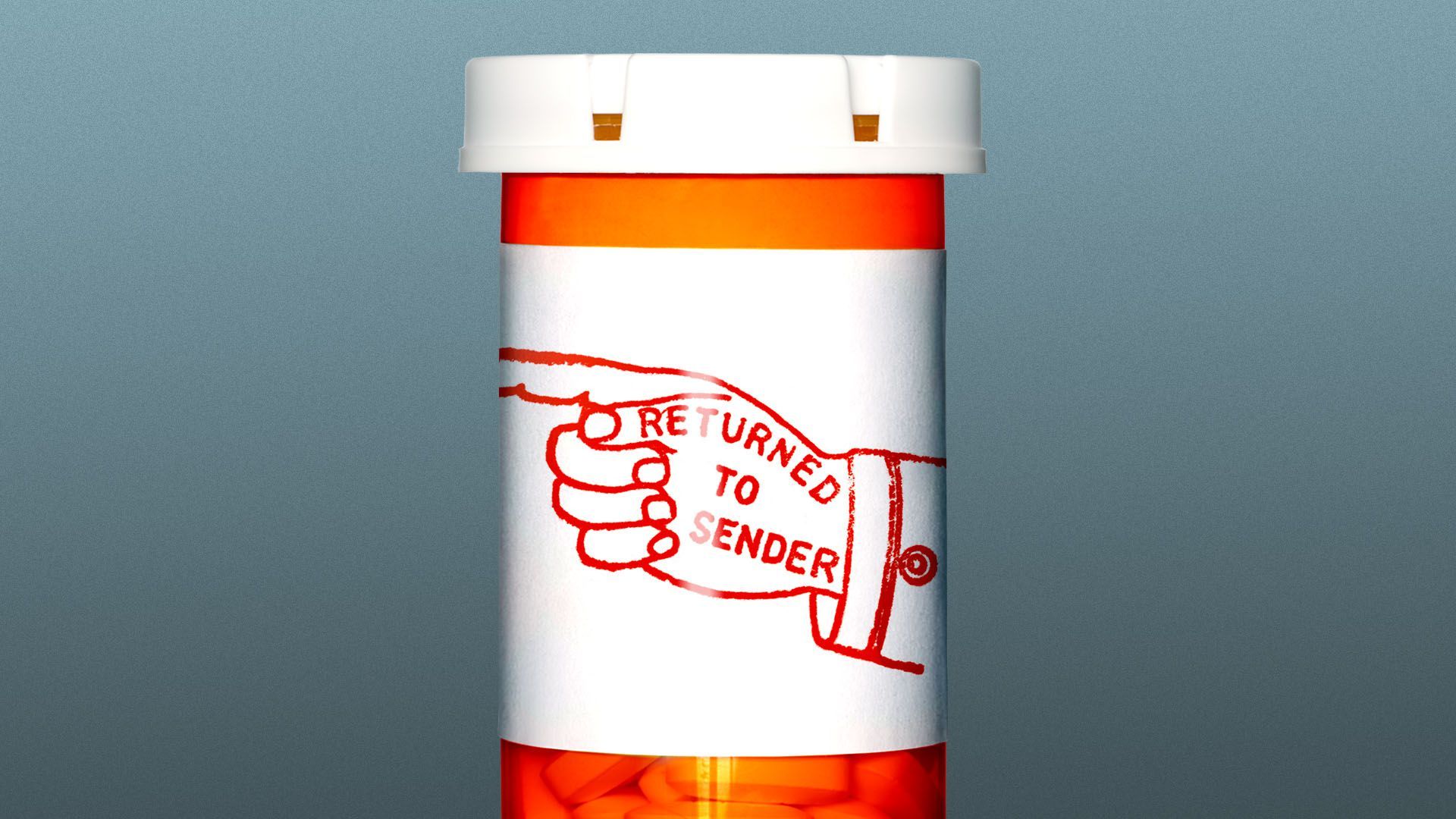| The FDA started discussions with states over creating a way to import drugs from Canada — a policy the Biden and Trump administrations both embraced to bring down health costs but which experts regard as having limited impact, Axios' Adriel Bettelheim writes. The big picture: With President Biden's drug pricing agenda stalled, importation could allow states to take advantage of lower drug prices abroad without the need for direct action to limit prices in the U.S. - Under one pathway, states, wholesalers and pharmacies submit importation proposals to HHS, which would be subject to safety and cost conditions.
Driving the news: The FDA last week held its first meeting with five states — Florida, Colorado, Vermont, Maine and New Mexico — that have submitted reimportation plans or are thinking about doing so, Politico first reported. Yes, but: The Pharmaceutical Research and Manufacturers of America sued to block a 2020 federal rule that would facilitate importation, citing patient safety and other concerns. Our thought bubble: With Canadian officials adamant they won't participate in the process, any importation plan is unlikely to actually bring down drug prices. The issue still could be politically appealing as the campaign season heats up. Read the rest. | 






No comments:
Post a Comment